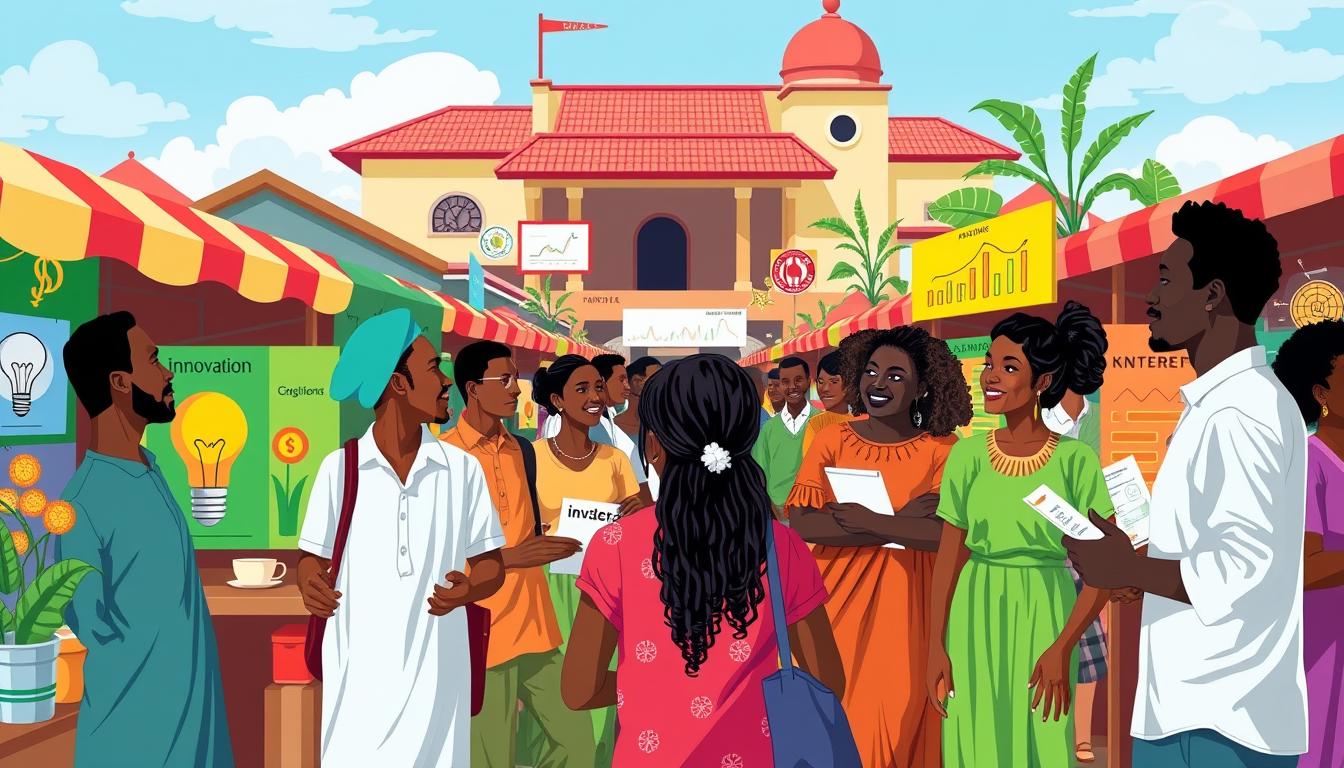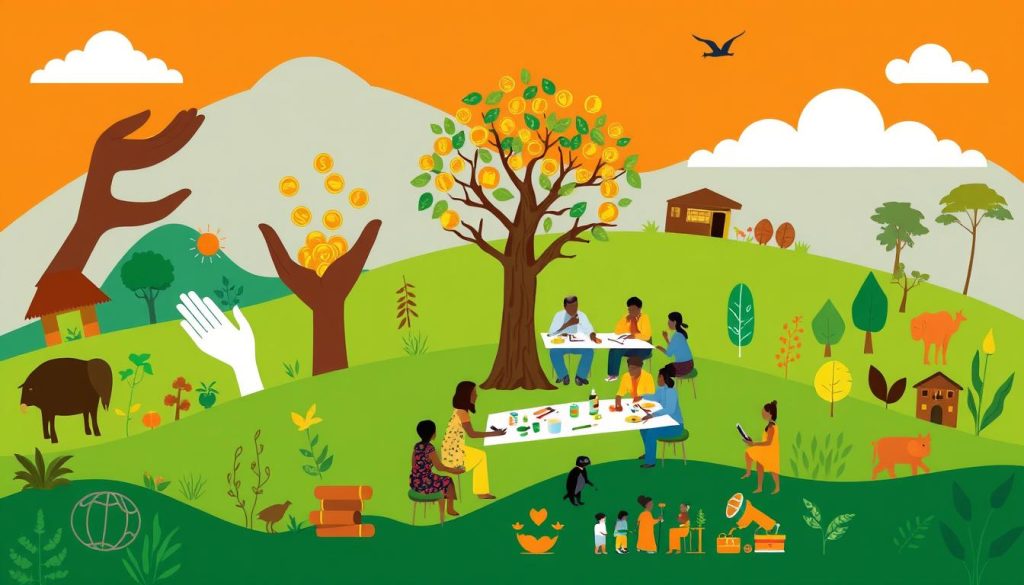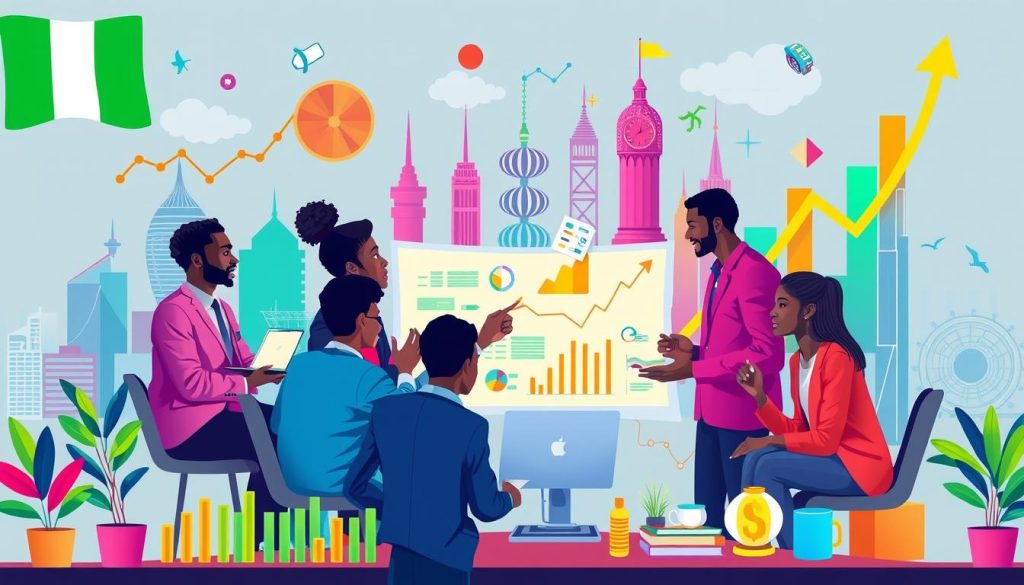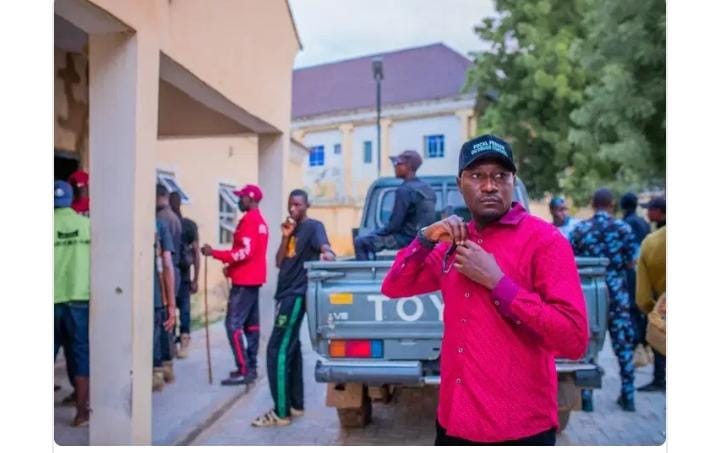
Welcome to our guide on free grants in Nigeria. We’ll look at funding options for individuals, businesses, and non-profits. If you want to start a business or help a social cause, we’ve got you covered. Our aim is to give you a full view of business grants and funding in Nigeria.
Free grants can help you get the money you need to reach your goals. With many government and private funding options, finding the right support is easier. We’ll cover everything from business grants to non-profit funding.
In this article, we’ll explore free grants, including government, non-profit, and private sector options. We’ll give you the info you need to choose the best business grants and funding in Nigeria.
Key Takeaways
- Free grants are available in Nigeria for individuals, businesses, and non-profit organizations
- Business grants can provide the financial support you need to start or grow a business
- Funding opportunities are available from government and private sector sources
- Non-profit grants can support social causes and community development projects
- Research and planning are key to securing free grants and funding opportunities
- Understanding the different types of grants and funding opportunities is crucial to making informed decisions
Understanding the Nigerian Grants Landscape
Exploring the Nigerian grants scene can be tricky. Yet, knowing the various grants is key. Government grants are crucial for backing projects like education, healthcare, and building infrastructure. These funds come from federal, state, and local governments to boost the economy and improve society.
Non-profit grants also play a big role. They help with social causes and community projects. These grants come from companies, foundations, and people wanting to help Nigeria. International grants support projects in Nigeria too, from foreign governments and organizations.
Government and non-profit grants are changing lives in many ways. They focus on:
- Education and skills development
- Healthcare and medical research
- Infrastructure development and construction
- Agriculture and rural development
Knowing about these grants helps people and groups get the funding they need. Whether it’s government or non-profit grants, there’s support for many projects and initiatives in Nigeria.
Types of Free Grants in Nigeria
Nigeria has many free grants for different areas, like small business grants and startup grants. These grants help entrepreneurs and small business owners grow. They also support new and innovative ideas.
Some free grants in Nigeria include:
- Small business grants for entrepreneurs and small business owners
- Startup grants for early-stage businesses and innovative ideas
- Grants for non-profit organizations and community development projects
To get these grants, knowing the eligibility and application process is key.
Nigerian entrepreneurs and small business owners can benefit from these grants to grow their businesses and contribute to the country’s economic development.
The Nigerian government and private groups give these grants to help the economy grow. These small business grants and startup grants help entrepreneurs and small business owners get the funding they need to succeed.
| Grant Type | Eligibility Criteria | Application Process |
|---|---|---|
| Small Business Grants | Entrepreneurs and small business owners | Online application and review process |
| Startup Grants | Early-stage businesses and innovative ideas | Pitching and review process |
Government-Sponsored Grant Programs
The Nigerian government has launched several initiatives to boost key sectors like education and healthcare. These programs offer financial help to individuals, groups, and institutions. They aim to fund projects that help the country grow and develop.
Some notable federal government programs include education grants for better schools and services. There are also healthcare grants for projects like building hospitals and clinics.
Federal Government Initiatives
The federal government has set up programs for education and healthcare. These include the National Education Grants and the National Health Grants. They fund projects to enhance education and healthcare quality in Nigeria.
State-Level Grant Programs
State-level grants support specific projects in each state. They fund initiatives like education and healthcare projects. This helps states address their unique needs and develop their communities.
Local Government Support
Local governments also offer grants for community projects. These include funding for infrastructure and social services. Grants help local governments improve citizens’ lives by building roads, schools, and healthcare facilities.
- National Education Grants
- National Health Grants
- State-Level Grant Programs
- Local Government Support
These programs show the government’s dedication to supporting education and healthcare. They do this through government-sponsored grant programs.
NGO and International Organization Grants
Non-governmental organizations (NGOs) and international groups are key in giving non-profit grants to Nigeria’s development projects. These grants are vital for projects like healthcare, education, and fighting poverty. The Bill and Melinda Gates Foundation is a great example of an NGO that funds these social efforts.
International bodies, like the United Nations, also give international development grants for projects in education and healthcare. These grants are vital for making Nigeria a better place. They focus on areas like:
- Poverty reduction
- Education
- Healthcare
These groups team up to fund and support Nigeria’s development goals. By getting non-profit grants and international development grants, people and groups can really make a difference.

Requirements for Securing Free Grants
To get free grants in Nigeria, you need to know what’s required. Grants are for entrepreneurs and small businesses. You’ll need a business plan, proposal, and financial statements.
Each grant has its own rules. But, they usually look at if your business is viable, has social impact, and benefits the community. It’s important to apply on time. This way, you have a chance to get the funding you need.
Essential Documentation
- Business plan
- Proposal
- Financial statements
Eligibility Criteria
Grant programs look at different things when they review your application. These include:
- Business viability
- Social impact
- Community benefit
Application Timeline
Grants have deadlines and review times. Make sure to apply early. This way, you have a better chance at getting the grants you need.
Understanding the requirements and eligibility criteria is crucial to securing free grants in Nigeria. By submitting a well-prepared application, entrepreneurs and small businesses can increase their chances of receiving funding opportunities.
By following these guidelines, entrepreneurs and small businesses can get the funding they need. This helps them succeed.
Step-by-Step Application Process
Getting free grants in Nigeria can seem hard, but it’s doable with the right help. To get startup grants or small business grants, you need a solid business plan. Also, showing how your business will make a positive impact is key.
The steps to apply include finding grants, getting your application ready, and sending in your proposal. Here’s what to do:
- Research grant programs: Find grants that match your business goals.
- Prepare your application: Have all the needed documents and info ready.
- Submit your proposal: Write a clear proposal that shows your business plan and social impact.
By following these steps and showing you understand your business and its impact, you boost your chances. This way, you can get small business grants or startup grants in Nigeria.

Common Mistakes to Avoid When Applying
When you apply for government or non-profit grants in Nigeria, it’s key to avoid common mistakes. These errors can lead to rejection. With careful planning and attention to detail, you can avoid these mistakes.
To boost your chances of getting funding, know the common mistakes. These include documentation errors like missing or wrong information. Also, managing deadlines well is crucial to not miss out on opportunities.
Documentation Errors
Some common mistakes in documentation are:
- Incomplete application forms
- Inaccurate or misleading information
- Missing supporting documents
Deadline Management
Don’t forget about budget planning issues. Unrealistic budgets or poor financial planning can also get you rejected. By avoiding these mistakes, you can improve your chances of getting grants in Nigeria.
It’s vital to check the application requirements carefully. Make sure you submit all necessary documents on time. This way, you can avoid common mistakes and have a better chance of getting funding for your projects or initiatives.
| Mistake | Consequence |
|---|---|
| Documentation errors | Disqualification |
| Deadline management | Missed opportunities |
| Budget planning issues | Rejection |
Success Stories: Nigerian Grant Recipients
Nigerian grant recipients have made big strides in different fields. This is thanks to education grants and healthcare grants. These grants let people and groups follow their dreams and help their communities.
Some notable success stories include:
- Establishment of schools and educational centers, providing access to quality education for underprivileged children
- Development of healthcare facilities and programs, improving access to medical care and reducing mortality rates
- Implementation of initiatives promoting economic empowerment, such as vocational training and entrepreneurship programs
These stories show how grants can bring about change in Nigeria. Grants for education and healthcare can tackle the country’s big challenges.
As the Nigerian government and private groups keep investing in grants, we’ll see more success stories. With the right support, Nigerian grant recipients can do amazing things and leave a lasting mark on their communities.
Monitoring and Reporting Requirements
After getting business grants or funding, it’s key to know the monitoring and reporting needs. You must keep accurate financial records, send in progress reports, and do impact assessments. This way, you show you’re following the grant rules and that your project works well.
It’s important to be open and responsible with business grants or funding. Keep detailed financial records, like budgets and financial statements. Also, send regular updates to the grantor about your project’s progress and goals.
Financial Documentation
Keeping good financial records is a big part of monitoring and reporting. You should have:
- Financial statements
- Budgets
- Expense reports
Progress Reports
Send progress reports to the grantor often. These should talk about your project’s milestones and successes. Include:
- Project updates
- Milestones achieved
- Challenges faced
Impact Assessment
Doing impact assessments is also key. You should check how your project affects society and the economy. You can do this by:
| Impact Area | Assessment Method |
|---|---|
| Social Impact | Surveys, focus groups, and interviews |
| Economic Impact | Financial analysis, market research, and economic modeling |
By following these steps, you show you’re serious about being open and responsible. You also make sure your business grant or funding is used well.
Conclusion: Making the Most of Free Grant Opportunities
Exploring free small business and startup grants in Nigeria can change the game. It helps individuals, entrepreneurs, and organizations fund their big projects. By knowing about government, NGO, and international grants, you can get the money you need to make your dreams come true.
To make the most of these grants, prepare well, pay attention to details, and show how your project will help society. Always meet reporting needs and show the results of your work. This keeps the grant money coming in.
With the right help and determination, you can get through the grant application process. This opens doors to big changes. So, take advantage of the free grant options out there. Use these resources to move your vision forward.





